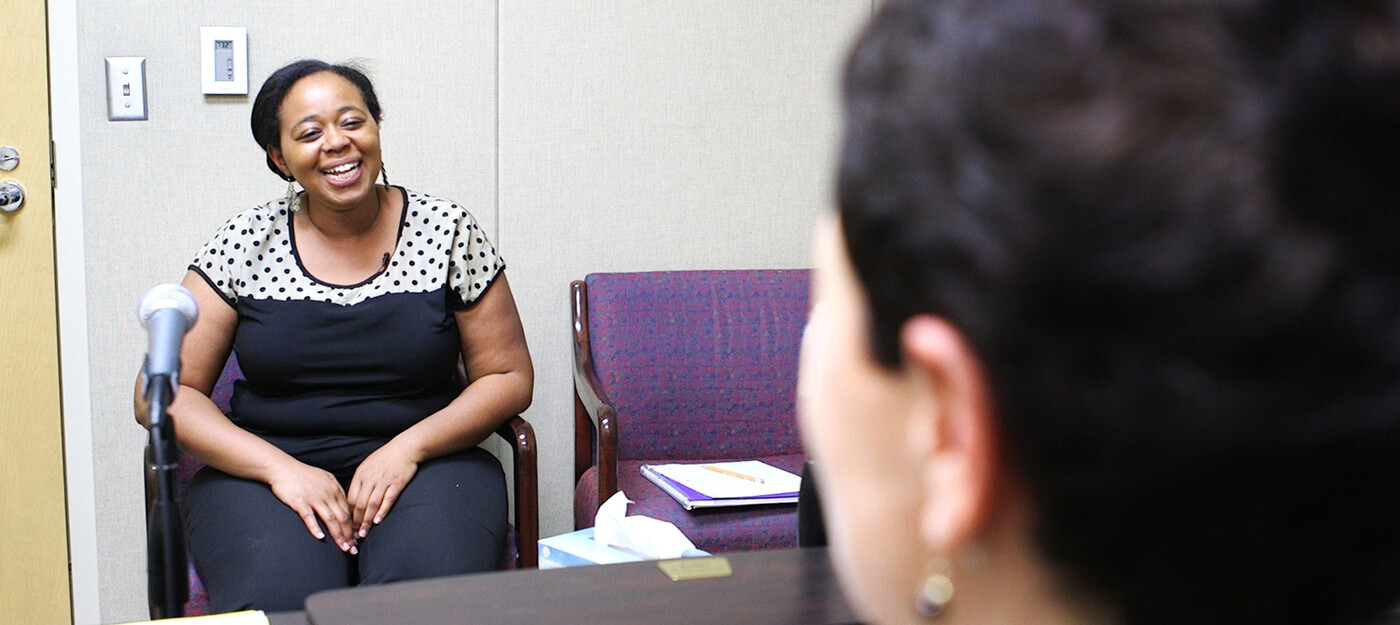Jazzmone Sutton lost her voice -- and, with it, a part of who she is. “I went to say words,” she said of a conversation with friends, “And the words did not come out.” For the Raleigh elementary music teacher, skipping words and having a gravelly voice kept her from singing the way she wanted. She sought help at Duke Voice Care.
Singing voice specialist Leda Scearce helped lead Sutton through one-on-one voice therapy at Duke Otolaryngology of Raleigh, retraining her in how to use her voice.
“We can’t just say, don’t use your voice,” Scearce said, since Sutton’s job requires her to speak and sing.
Scearce explained that half of all teachers will have a voice disorder at some point in their career, with many cases, like Sutton's, resulting from overuse.
Ten weeks later, Sutton left vocal therapy singing.
Having given up recreational singing in order to save her voice for work, she was thrilled to be able to sing along to the radio, make noises in class, and sing for fun after the children went home for the day.
“I love the sound of my voice,” Sutton said. “It’s a voice that I haven’t heard in a long time.”






